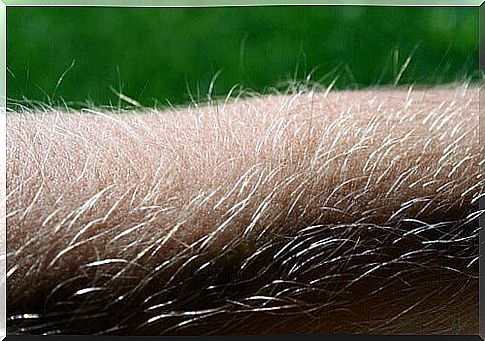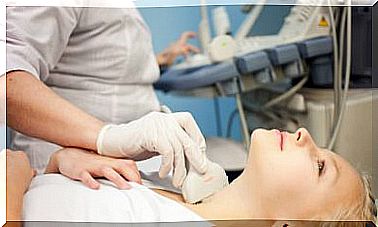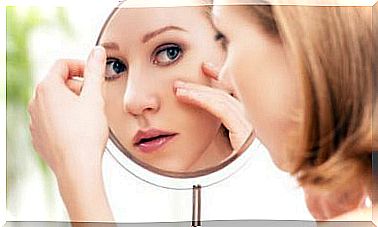Hypertrichosis Or Werewolf Syndrome
Hypertrichosis is a rare disease that consists of excessive hair growth anywhere on the body. It is also called werewolf syndrome, because the people who suffer from it, unfortunately, have a certain resemblance to this character.
This pathology can be:
- Generalized : hair grows all over the body, except on the hands and feet.
- Localized : in a specific area, either on the back, on the forehead or elsewhere.
When we speak of hypertrichosis as a genetic disease, it is usually due to an alteration in the X chromosome. This is extremely unusual, as only about 50 cases have been documented. Also, there is no cure.
However, there are other factors that can trigger this disease, such as certain medications. In fact, this year 2019 there has been an outbreak of hypertrichosis in Spain that has caused 17 cases in babies. In this article we explain everything you need to know about it.
What is hypertrichosis?

As we have already mentioned, hypertrichosis is the massive growth of hair, both in quantity and in thickness, in places of the body where there is usually not, such as the forehead, for example.
It is a benign pathology that does not endanger the life of those who suffer it. However, it is a very serious aesthetic problem that enormously damages that person’s self-esteem.
When the disease is caused by a genetic alteration, it is common for other members of the family to present it as well. In this case, the hair does not disappear and there is no cure. The only treatment is hair removal, although it is not definitive, unless laser techniques are used.
On the other hand, the cause of hypertrichosis may be a drug that produces it as a secondary reaction. It is not frequent and, in theory, when eliminating the drug, the hair tends to gradually disappear.
What has happened to hypertrichosis recently?
Hypertrichosis is currently on everyone’s lips because, recently, there have been around 20 cases in babies with this pathology in Spain. The babies had been medicated with omeprazole, which is often used for certain stomach problems, such as gastroesophageal reflux.
However, it turned out that the batch was defective and the drug the babies had actually ingested contained minoxidil. It is a drug that is used to treat alopecia or hair loss. What it does is dilate the blood vessels, increasing blood flow. It is one of the few medications that has been shown to promote hair growth.
What are the testimonials?
The mother of one of the babies affected by hypertrichosis has explained her version of events. After spending time taking large amounts of this medicine, your baby unknowingly began to experience strange symptoms.
In the first place, this hypertrichosis derived from a pharmaceutical failure was accompanied by yagas in the mouth that produced discomfort in the baby. In addition, the mother noticed that the smell of the urine had changed. Likewise, the girl had experienced eye problems during that time.
What treatment exists for these cases of hypertrichosis?

As we have already mentioned, hypertrichosis that arises as a side effect of a drug usually reverses. To do this, it is necessary to detect the drug that is causing it and eliminate it. In the case of these babies, since it was made by mistake, the diagnosis has been more complicated, since hypertrichosis was not recorded as a side effect of omeprazole.
However, once the drug is withdrawn, it takes between 3 and 6 months for the hair to reverse. For this reason, it is also important to make the family or the person who suffers aware of their situation, since it is very uncomfortable and detrimental to self-esteem.
In conclusion
Hypertrichosis is a rare disease, which can be generalized or localized, depending on which parts of the body it affects. It is a pathology that can arise from a genetic alteration or as a side effect of medications, among other causes.
It is important to make people aware of how difficult it is to cope with this disease due to the great aesthetic repercussions it has. Therefore, in addition to going to a doctor, it is recommended to seek psychological assistance for the affected person.









